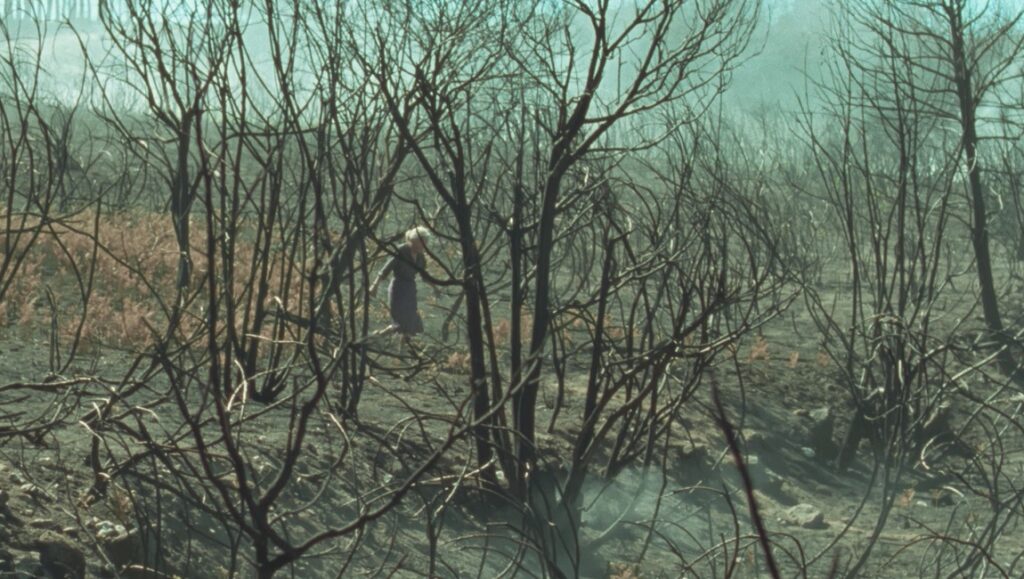Fire Will Come retains a kind of documentary-based fascination even as it becomes clear capturing the titular blaze was the only real objective here.
Oliver Laxe‘s Fire Will Come is a film built upon two contrasting modes. On one hand, there’s its ethereal, otherworldly atmosphere, seen most clearly in the film’s hypnotic, Vivaldi-backed overture of trees being felled in a fog-shrouded night. On the other, there’s its essential, ontological realism. Centered on Amador Coro (Amador Arias, a former forest warden playing a variation of himself), an arsonist recently released from prison, the film attentively depicts his modest home life with his elderly mother Benedicta (Benedicta Sanchez) in the mountains of rural Galicia. The workings of their small farm are illustrated in detail, with ample time expended on even the treatment of an injured cow — a choice that draws attention for its essential irrelevance to the main plot. For a time, Fire Will Come mainly functions as a subdued character study: tensions abound, but Laxe’s inclination is to defuse them, often by defaulting to silence and stasis. That is, until the climactic conflagration portended by the title, for which Laxe, his crew, and local firefighters underwent months of preparation — and which is no less devastating or fearsome for it. With a scale far beyond that of the ones in Roma or Too Late to Die Young, the wildfire that overtakes Laxe’s film is impossible to control. And if it in the end feels as if the director had little interest in filming anything other than the fire — and merely constructed the pretense of a story in order to capture it — Fire Will Come at least retains a kind of documentary-based fascination. As the Galician countryside goes up in flames — and any narrative interest with it — all that remains is the director’s own relationship to his homeland, which he describes as having “a beauty so intense and unpredictable that it knows no restraint.”
Originally published as part of Toronto International Film Festival 2019 | Dispatch 7: Wavelengths Program.


Comments are closed.